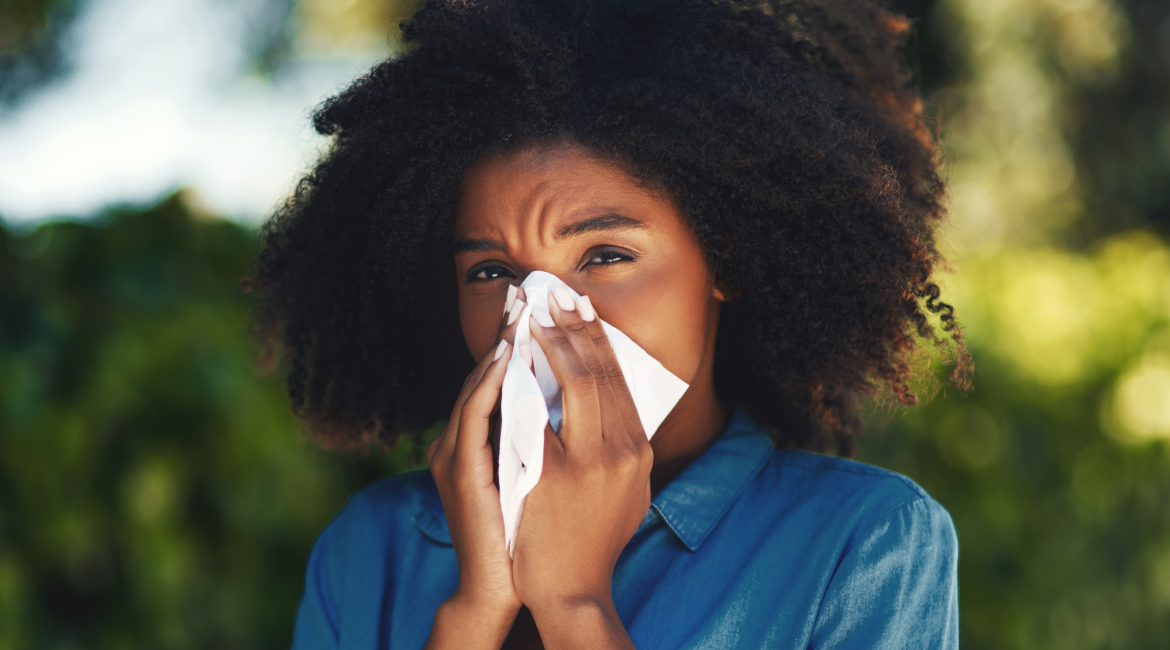Spring has sprung and unfortunately, so have those allergies! Thankfully, those random food items in your fridge might just give you the relief you seek.
Are you tired of turning to antihistamines every time your nose starts running, your eyes start watering, and that scratching throat sensation reappears?
That being said, please also quickly note that while many of these wholesome food options have amazing anti-allergy properties, they are not to replace traditional allergy treatments for those suffering from severe allergies.
Alright, so let’s see which of your favourite foods made it onto our list for their powerful anti-allergy properties:
1. Flaxseeds and walnuts
Yes, your favourite nutty snack has some serious healing properties. These tree nuts contain high levels of omega-3 fatty acids. These fatty acids are great at helping ease any forms of stuffiness or swelling in the nasal cavity. This means breaking down any congestion that you may be experiencing.
Flaxseeds specifically also contain selenium. This is a mineral that has been known to help reduce allergy responses in the body; meaning you are less likely to be triggered by allergies.
2. Red bell peppers
When it comes to the excessive itchiness, hives and physical discomforts of allergies, blame histamines. Well, the best way to deal with histamines is to add some vitamin C to your diet. And red bell peppers have one of the highest vitamin c contents!
Red bell peppers indirectly inhibit inflammatory cells from releasing histamine. Red bell peppers also help break down any existing histamine in the body, providing allergy symptom relief. Better yet, this incredible veggie will also help boost your overall immunity during hay fever season.
3. Apples
As the popular saying goes: an apple a day keeps the (allergy) doctor away! Apples should easily become your go-to fruit during allergy season as they are loaded with quercetin. Simply put, this antioxidant works much like a natural antihistamine.
So if you are experiencing mild allergy symptoms (excessive sneezing, itchy eyes and a runny nose), this supplement will do the trick in terms of relieving you of those symptoms. So if you can, try to get at least one apple in a day and witness the magic happen!
4. Ginger
Did you know that for centuries now, ginger has been considered a form of traditional medicine? This ancient spice has natural anti-inflammatory effects that will easily help you combat those seasonal allergy symptoms.
A 2020 study published in BMC Complementary Medicine and Therapies found that 500 mg ginger extract improved nasal symptoms and quality of life for individuals with hay fever, compared to loratadine –– a common antihistamine drug used to treat allergies.
5. Tomatoes
Believe it or not, this popular fruit is very helpful when it comes to combating seasonal allergy symptoms; this is because tomatoes are loaded with an antioxidant called lycopene. This antioxidant helps to reduce inflammation caused by an allergic reaction.
That being said, keep in mind that the best way for your body to absorb lycopene is via cooked tomatoes. So grill your tomatoes or turn them into tomato soup and benefit from all of the natural antioxidants that your body needs.
6. Onions
When it comes to more controversial veggies, onions are pretty high up on that list. You either like them or you don’t, but if you can incorporate them into your diet, then definitely do that! Why? Because this pungent vegetable is a lot more powerful than you may realise.
Onions have bioflavonoids which provide major allergy relief. Without taking you through an entire biology lesson, bioflavonoids simply act as mast-cell stabilizers. This helps decrease the number of cells reacting to an allergen.
7.Turmeric
It only makes sense that we end this section of the blog with an absolute healing powerhouse, and that is none other than turmeric. As a member of the ginger family, this root has been known to relieve nasal symptoms and increase airflow in individuals suffering from mild allergy symptoms.
In fact, research shows that by ingesting turmeric on a daily basis (preferably first thing in the morning), you will be able to alleviate excessive sneezing and congestion build-ups throughout the day! How amazing!
Foods to avoid if you suffer from allergies
Before we sign off, we thought that it would be worthwhile to quickly look at the types of food that worsen your allergies. Remember to always keep an eye out for your own personal triggers. Keep tabs on the food you ingest and how they affect your allergies.
That said, here are the most common foods that trigger allergy symptoms:
- Dairy
- Processed meat
- Refined sugar
- Alcohol
Also, keep in mind that everyone is different. What might work for some may not work for others. See what works for you and keep doing that! By listening to your body, you will be able to help heal it.
Yours in holistic health insurance,
Oneplan




